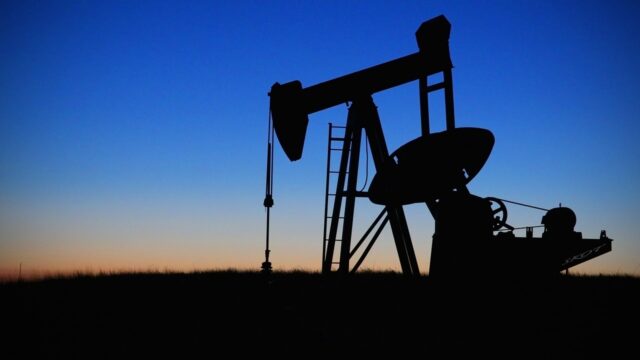
Geopolitical Report ISSN 2785-2598 Volume 31 Issue 2
Author: Silvia Boltuc
Iraq has the world’s third-largest proven conventional petroleum reserves after Saudi Arabia and Iran. Its proven natural gas reserves accounted for approximately 125.6 trillion cubic feet at the end of 2020. Recent developments in the oil and gas field suggest that the Middle Eastern country might be one of the future European leading suppliers.
The first stage of a gas processing facility at the Halfaya oil field is expected to come online ahead of schedule by early 2024. As an outcome, Iraq will be able to use more of its gas assets for electricity production, decreasing its dependency on external supplies.
The project is being built by the Chinese state firm China Petroleum Engineering & Construction Corporation (CPECC) on behalf of Halfaya field operator PetroChina, the listed arm of the state-owned China National Petroleum Corporation (CNPC). Halfaya heavy oil field reserves account for 7.11% of the total remaining reserves of producing heavy oil fields globally and currently account for approximately 6% of the country’s daily output.
Several players in the energy market implemented the plans to redevelop the Halfaya Oil Field in the southern Iraqi province of Maysan: the consortium of China National Petroleum Corporation (CNPC), Total, Petronas, and Basra Oil Company (BOC).
The Prime Minister of the Kurdistan Regional Government, Masrour Barzani, multiple times reiterated Iraq can make up for at least some of the energy shortfall in Europe. Many European leaders such as the German Chancellor Olaf Scholz evaluated the possibility of getting gas supplies from the Middle Eastern countries via Turkey.
Iraqi Prime Minister Mohammed Al-Sudani made similar statements, affirming that Iraq aims to halt gas imports within three years as it is pushing ahead with projects to tap its massive natural gas resources.
Iraq: a geopolitical scenario
Among global crises, Saudi Arabia and Iraq are allocating more and more of their crude oil toward Europe as Russian shipments have been diverted toward China and India.
In the current energy market, it is important to consider different scenarios related to the Iraqi exports’ capabilities.
Iraq has to pay heavy gas import bills and depends on energy supplies from countries such as Iran because of its persistent electricity supply deficits. The gas shortages result from the lack of field development and war damage; moreover, the government of Erbil and Baghdad lucked an agreement on regulating the oil and gas market.
The international energy crisis and the Covid pandemic pushed again the Middle East into the spotlight of Western countries searching for new energy supplies to substitute Russia’s. Iraq has become one of the main targets because of its proximity to Turkey, its political closeness to the United States, its efforts in the democratic process and its unexploited huge oil and gas reservoirs.
Suddenly attention from Western actors might destabilise the country: for instance, after UK representatives reached out to the government of northern Iraq to discuss possible gas supplies towards Europe, via Turkey, Ankara started a military operation allegedly to ensure the territories which would have served as corridors.
The country has experienced a long-lasting political crisis and widespread protests. Furthermore, Iraq is still fighting against the resurgence of terrorism. To attract investments and be a reliable partner for Europe, the country needs to be stable.
The gas would reach Europe via Turkey even though the Turkish-Iraqi border is a highly unstable area. Ankara conducted several military operations officially to contrast the Kurdish insurgency. Iran accuses local Kurdish groups to back Iranian internal protests.
Finally, Peshmerga’s forces lack unity due to a puzzled identity, unstable funding, and politicisation. The division between the Kurdistan Democratic Party (KDP) and the Patriotic Union of Kurdistan (PUK) resulted in a de facto fracture of the oil and gas-rich area.
Recent escalation between Iran and Israel/the U.S. renewed the Iraqi regional key role. U.S. pressure to stabilise the country and resolve the disputes over oil and gas fields between Baghdad and Erbil underlines Iraq is becoming again the battleground of these major powers, threatening the country’s security.
The development of energy facilities in Iraq will lead to reducing energy dependence on neighbouring countries such as Iran. This might lead to regional competition since Tehran is trying for a long time to establish Iran as the regional leading energy and transit hub, given its huge oil and gas reservoirs, its strategic location in the Gulf, and its being a member of regional economic organisations and corridors.
Forcing the KRG and the Iraqi government to overcome disputes in the energy field might lead to a bigger crisis. Erbil accuses Baghdad of wanting to keep all the revenues for itself, although the reservoirs are heavily concentrated in Iraqi Kurdistan.
Iraq economically hugely depends on the United States and has a NATO mission deployed on the ground. The Middle Eastern state has also been a recipient of Chinese investment. The Chinese-U.S. confrontation might reflect on the country’s stability.
Conclusion
Iraq has the ambition and potentialities to become one of the main oil and gas suppliers to Europe considering Brussels’ necessity to diversify and expand its energy trade partners, particularly after the beginning of the Ukraine conflict.
On the one hand, Iraq has significant oil and natural gas reserves that might support the national economy and drive Iraqi foreign exports and trade and, thus, improve local socioeconomic conditions.
On the other hand, the Iraqi oil and gas market might face potential risks, such as political instability, terrorist threat, market volatility, and foreign actors’ interests, which might affect Iraqi exports and become an obstacle.
In this context, increased geopolitical tensions because of Turkish ambitions and military operations in the area and the ongoing confrontation between Russia and the West and China and the United States, as well as internal political instability caused by Erbil-Baghdad confrontation over oil revenues and terrorist activity, could harm the Iraqi strategy to exploit its natural reserves and export its energy products in the international market, especially in Europe.



